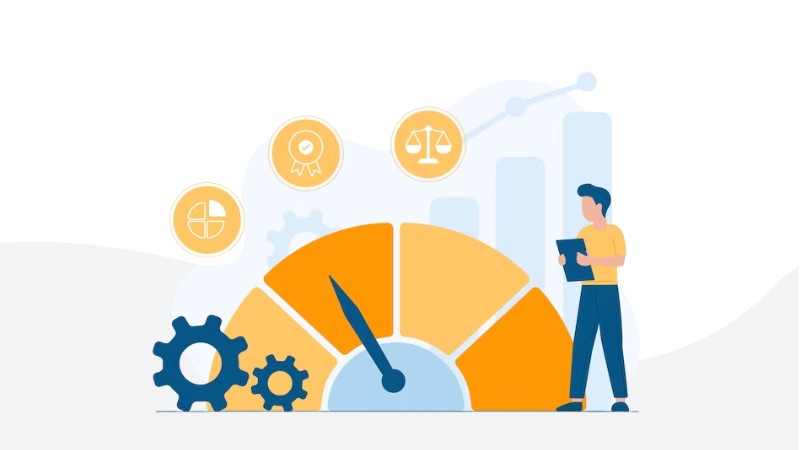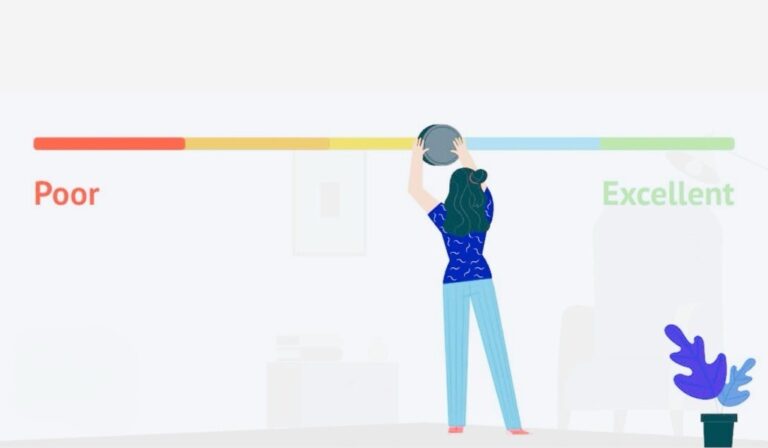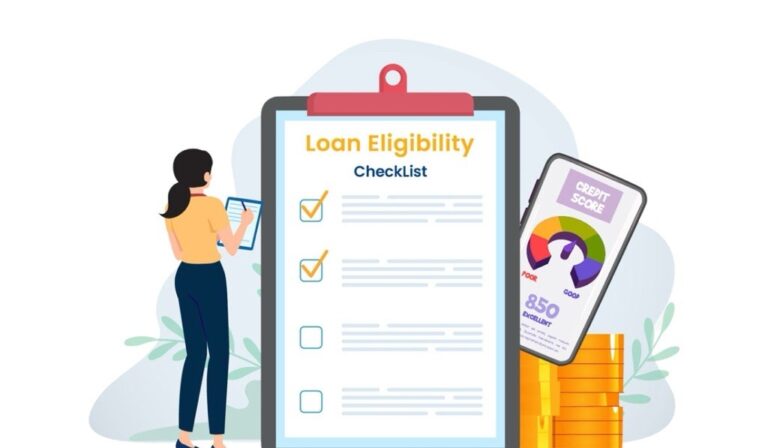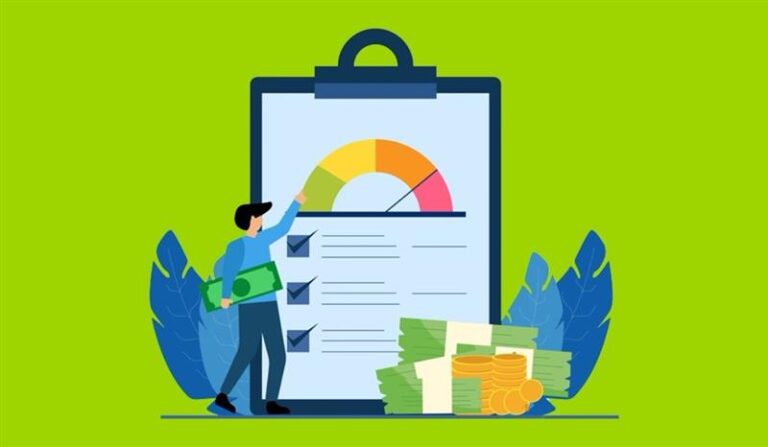The CIBIL score, a numerical value ranging from 300 to 900, serves as an indicator of your credit reliability. This score is pivotal for financial institutions when evaluating personal loan applications. A higher score suggests a commendable credit track record, enhancing the likelihood of timely loan repayment. Conversely, a lower score could result in loan application denial or necessitate higher interest rates. This article will provide an in-depth understanding of the significance of the CIBIL score in securing personal loans, including the aspects that influence it and the benefits of maintaining a robust credit score.
A CIBIL score is an important factor that checks the creditworthiness of the person. It is considered by lenders when you apply for a personal loan and other credit products. A personal loan is generally a type of unsecured loan that is taken for a short or medium-term period. The CIBIL score for a personal loan depends on several factors like paying off debt, medical expenses, etc. The lender checks the CIBIL score whenever one applies for a personal loan before sanctioning the loan. Generally, the credit score ranges between 300 and 900, where 300 is the lowest and 900 is the highest.
How much CIBIL score (Credit Score) is required for a personal loan in India?
A good CIBIL score is an important factor that is considered when giving a personal loan in India. There are three ranges along with their approval rate and applicable interest rate that one will be offered when applying for a personal loan. The following table can be checked to get an idea of the same:
| CIBIL Score Range | Loan Approval Rate | Interest Rates |
| 750 and above | Ideal Range — High approval chances | Lowest Interest Rates |
| Below 750 | Approval Possible — Lower approval chances | Potentially Higher Interest Rates |
| Below 600 | Challenging — Very Low approval chances | Very High-Interest Rates (if approved) |
Personal Loan for CIBIL score under 550
Getting a personal loan in India with a CIBIL score under 550 is extremely difficult. Some lenders can offer you a loan with this score but with stringent conditions and higher interest rates as compared to borrowers with a healthy score. This reflects the increased risk they take by lending to you. Instead of facing potential rejection or unfavourable terms, consider focusing on improving your CIBIL score. Consistent on-time payments and managing your credit utilisation ratio can significantly increase your chances of securing a personal loan with favourable terms in the future.
Ideal CIBIL Score Range for Your Personal Loan
The ideal CIBIL score for personal loans in India lies between 750 and 900. This is considered a good range as it showcases strong creditworthiness to lenders. This in turn maximises your approval chances thus securing the lowest interest rates. However, some lenders may approve loans with scores above 600, but often with stricter terms.
Importance of a Good CIBIL Score for a Loan Approval
Having a good CIBIL score for a loan is very important in order to avail multiple loan options in India. It signifies creditworthiness for lenders thus increasing your chances of loan approval and securing attractive interest rates. A good CIBIL score also leads to saving substantial cost savings and smoother access to funds.
Factors That Affect Your CIBIL Score for a Personal Loan
The following are the major factors that affect the CIBIL score for a personal loan:
Credit Repayment History
Credit repayment history is one of the crucial factors as it reflects your past performance in managing debt. A history of on-time payments on loans, credit cards, and other obligations significantly improves your CIBIL score. However, late payments, defaults, or write-offs can bring it down.
Also, read: How to increase CIBIL/Credit Score?
Credit Utilisation Ratio
This ratio indicates how much credit you are using compared to your credit limit. Aim to maintain your credit usage under 30% for optimal financial health. For instance, if your credit card limit is ₹10,000, try to maintain a balance below ₹3,000. A high credit utilization ratio suggests you’re overextended and might struggle to repay a new loan.
Credit Mix
Having a healthy mix of credit products, including secured loans (like home loans) and unsecured loans (like credit cards) shows responsible credit management. If you have limited credit history, consider a secured loan to build your score.
Credit History
A longer credit history with a good track record generally translates to a higher CIBIL score. This shows lenders you have experience managing credit responsibly over time.
Positive Habits for a Healthy Credit Score
- Paying the credit card bill timely is one of the major golden rules. Pay your credit card dues, and loan EMIs on time, and avoid late fees
- Maintain low balances on your credit cards compared to their limits. Strive for a credit utilization rate under 30%. For example, with a credit limit of ₹10,000, aim to keep your balance under ₹3,000.
- Having a mix of secured loans (like home loans) and unsecured loans (like credit cards) shows responsible credit behaviour. Consider a secured loan, like a two-wheeler loan, if you have limited credit history.
- You’re entitled to a free CIBIL report once a year. Check for errors and dispute them directly with CIBIL if you find any.
- Make it a habit to contribute more than the minimum payment required on your credit card balances. By doing so, you’ll diminish your debt more swiftly and enhance your credit utilization rate.
- Avoid applying for several credit cards simultaneously. Every application triggers a hard inquiry which can slightly lower your score.
- A long credit history with on-time payments is favourable. Don’t close old credit cards unless they have high annual fees or tempt you to overspend.
- Use credit cards for planned purchases you can repay within the billing cycle to avoid high-interest charges.
Addressing Negative Factors on Your Credit Report
A credit report with a negative graph can greatly impact your financial health, and thus proper measures should be taken to keep it in check.
- Assess your credit report regularly to deal with any inaccuracies or wrong information. You can generate your monthly credit report online and check it thoroughly
- In case, any of the mistakes are found then the mistake should be reported to the concerned credit reporting bureau either online or by mail
- One of the major factors that negatively impact your credit report is on-time payment. Try to make timely payments and avoid late payments to refrain from penalties
- High credit utilisation can also hurt the score, it is important to pay the existing debt and avoid using too much of the available credit
Understanding the Consequences of a Low CIBIL Score
A CIBIL score is of utmost importance when applying for a credit card or loan. Generally, a credit score equal to or more than 650 is considered good. However, a CIBIL score less than this is not good for your credit health and can lead to the denial of your credit card application process or CIBIL score loan.
How to Present a Strong Case for Loan Approval
To ensure a robust application for a personal loan, crafting a compelling case for approval is crucial. This encompasses more than just a solid credit history or a high CIBIL score; it’s about presenting a comprehensive financial profile that demonstrates your reliability as a borrower. Here’s how to position your application for success:
- Enhance Your Credit Score: Before applying, take measures to boost your credit score. This might involve settling outstanding debts, correcting errors on your credit report, and maintaining a healthy balance between your credit usage and limits. A higher score not only improves your chances of approval but may also afford you more favorable loan terms.
- Stabilize Your Income Evidence: Lenders seek assurance that you have a steady income to cover your loan repayments. Furnish proof of your employment stability and income consistency over the past years. This could include salary slips, bank statements, and any other revenue streams.
- Lower Your Debt-to-Income Ratio: A lower ratio of your existing debt to your income signals to lenders that you manage your finances responsibly and have the capacity to take on new debt. You can easily make this ratio better by paying your existing debts or with a hike in your income.Offer Collateral if Necessary: For some personal loans, offering collateral can strengthen your application, especially if you’re struggling to secure a CIBIL score loan based on your credit score alone. Collateral can be in the form of assets like property or investments, providing lenders with a safety net in case of default.
- Prepare a Detailed Application: Provide comprehensive and accurate information in your loan application. This includes personal details, financial status, and the purpose of the loan. A well-prepared application demonstrates your seriousness and can speed up the approval process.
- Highlight Your Savings and Investments: Showing that you have a habit of saving and investing not only demonstrates your financial prudence but also reassures lenders of your backup resources for repaying the loan.
Frequently Asked Questions
1. What’s the minimum CIBIL score needed to get a personal loan?
Ans. The minimum CIBIL score for personal loans ranges between 650 and 900.
2. Is it possible to secure a personal loan if my CIBIL score is under 600?
Ans. Yes, you can get a personal loan with a CIBIL score below 600, but at a high interest rate.
3. How regularly should I check my CIBIL score?
Ans. One should assess their CIBIL score regularly every month to make improvements in the same.
4. What steps can I take to improve my CIBIL score quickly?
Ans. One should pay their EMIs timely and have 1 to 2 credit cards depending on the monthly income.
5. Can I get a personal loan with a 650 CIBIL score?
Ans. Yes, you can get a personal loan with a CIBIL score below 650, but at a high-interest rate.
6. What’s considered a decent CIBIL score to get a loan?
Ans. A good CIBIL score for a loan lies between 600 and 900.
7. Is 700 considered a satisfactory CIBIL rating for securing a personal loan?
Ans. Yes, 700 is considered a good CIBIL score for a personal loan as it shows your repayment history.
Also, check:





